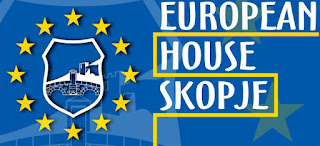Making your voice heard
Citizens’ Perspectives on the Future of Europe adopted in 27 EU member states
“Ever since the constitution was voted against in the Netherlands and France, we have gradually understood that the EU is a top-level-project. A project that is not supported by the citizens will not survive. That is why the European Citizens’ Consultation process is so important,” said Margot Wallström, Vice-President of the European Commission in charge of Institutional Relations and Communication Strategy, in a video conversation with the participants of the Swedish citizens’ consultation last weekend.
Parallel to the celebrations of 50 years of the Treaty of Rome, the weekend of 24-25 March saw the fourth and final round of the European Citizens’ Consultations with national consultations in 10 EU-Member States. Over the last two months about 1500 randomly selected citizens from all EU member states reflecting the diversity of the European population came together in 27 national consultations on the occasion of the first-ever European Citizens’ Consultations. They all dedicated a whole weekend to debating the future of Europe, thereby giving voice to their visions and expectations and exchanging views with their European fellow citizens gathered in similar consultations at the same time. Energy & environment, family & social welfare, the EU’s role in the world & immigration were at the heart of discussion. These topics were chosen in October 2006 by 200 randomly selected European citizens convened in an Agenda-Setting Event in Brussels.
National and European decision-makers, such as the EU-Commissioner for Health Markos Kyprianou, Dr. Michael Frendo (Maltese Minister of Foreign Affairs), Cecilia Malmström (Swedish Minister for EU Affairs), Barbara Prammer (President of the Austrian Parliament) and various Members of the European Parliament attended the final round of national consultations to collect fresh impressions from the vivid discussions and to be handed over the results of the deliberations. They welcomed the European Citizens’ Consultations as a successful model for an EU lending an ear to its citizens’ expectations. Minister Malmström stressed during the handing-over ceremony of the Swedish Perspectives on the Future of Europe: "We will read this with great interest, and hopefully discuss it further at the next meeting with all the EU-ministers in mid May. There are much more spirited ideas in this report than at most of the meetings I attend to." Citizens at the Cypriot consultations suggested to carry on with citizens consultations on EU issues. EU-Commissioner Markos Kyprianou promised that he will convey this request to Brussels.
Occasionally, citizens were at first sceptic whether their knowledge on European politics would be sufficient for debating such big questions as the EU's role in the world, but they soon lost their reserve and engaged in lively discussions. “In the beginning, when I was invited, I was quite sceptical about the event, but once here, I changed my opinion seeing that people around me were willing to exchange opinions and make changes,” confesses Mindaugas Lataitis, a 22-year-old Lithuanian working in advertising. For most of the participants, the citizens’ consultations were a unique experience. “Being here is a pleasure and a privilege: I feel part of an important project for our children and I believe this is a useful contribution towards their future,” said one participant from Italy. Through the interconnection of simultaneous national consultations, a truly European discussion across the borders of geography and language emerged. And Christos Michailidis, 45, from Pafos in Cyprus gave voice to what many participants wished: “This is something that will bring results and I wish to be taken into account because this concerns the future of us all. I hope we can live in a united Europe which will show in practice its interest in its citizens.”
But the work is not all done: On 9-10 May one participant from each of the 27 national consultations will come to Brussels and take the challenge to synthesize the results from the national consultations into the ‘European Citizens’ Perspectives on the Future of Europe’. These will in a solemn ceremony be handed over to representatives of the European institutions.
For more information on the Final Event, the projects’ methodology and on the outcomes of the citizens’ consultations go to our website:
www.european-citizens-consultations.eu.
Search This Blog
Subscribe to:
Post Comments (Atom)
European House Skopje is an NGO in Macedonia that promotes European values, democracy, human rights, and regional cooperation. Its...

-
Small Business Ideas You Can Run From Home If you have a desire to start a home-based business, you’re part of a growing trend. As a matter ...
-
Decentralising Structural Funds' management to the regional level Decentralised programming = Decentralised implementation? Or, Why (f...
-
• Chapter 1: Doing Business In Macedonia • Chapter 2: Seling Products and Services • Chapter 3: Leading Sectors for Export and Investment • ...
No comments:
Post a Comment